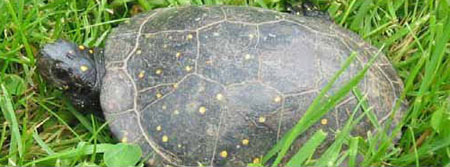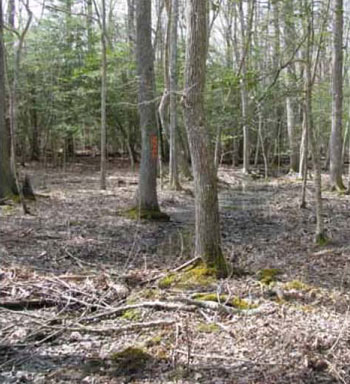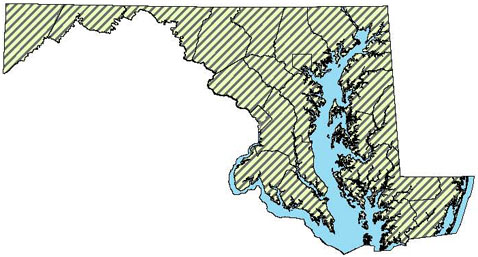Field Guide to Maryland's Turtles (Order Testudines)
Main_Content
Spotted Turtle (Clemmys guttata) | | Common Name:
|
Photo of Spotted Turtle courtesy of Tony Prochaska.
|
Size: 3½ - 4½ inches. Record - 5 inches |
Appearance:-
Diagnostic feature is a variable number of yellow or
orange spots on a black carapace (top shell).
-
Spots may be lacking or very faded on some individuals.
-
The carapace is smooth, keel-less, broad and slightly
domed.
-
Males have brown eyes, while females eyes are orange.

Photo of Spotted Turtle courtesy of Scott A. Smith.
|
Habitats:
A wide variety of shallow wetlands are used including wet meadows,
freshwater marshes, bogs, swamps, small ponds, ditches, small woodland
streams, Delmarva Bays and tidally influenced brackish streams. All
typically have a soft substrate and some aquatic or emergent vegetation.
They also seasonally spend time away from water, typically in woodlands,
pastures and fields.
|
How to Find:
Search shallow wetland edges during the day, particularly those dominated by
herbaceous vegetation. Look for basking individuals in the morning. Easiest
to find mid-April through June, though active until October.

Photo of Habitat for Spotted Turtle
courtesy of Rebecca Chalmers.
|
Distribution in Maryland:
Found throughout Maryland.

|
|
